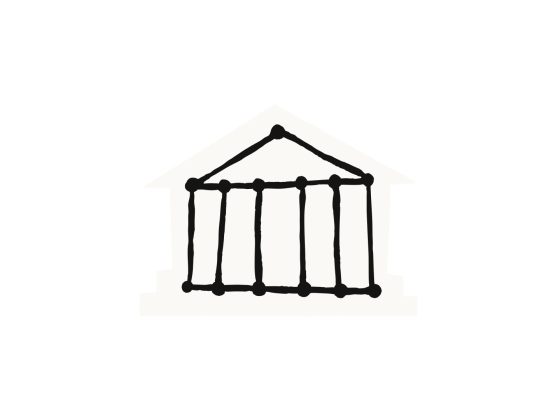The Institute of Technical Education (ITE) and DBS Bank are rolling out an enhanced ITE-wide financial literacy programme to all 27,000 of ITE’s attending students. With ITE rolling out Home-Based Learning (HBL) given elevated Covid-19 social-distancing measures, lessons have been adapted accordingly for students. This year’s iteration expands on last year’s pilot, which involved 10,000 Year 1 students1. The new curriculum for Year 2 students will focus on teaching them how to manage their finances after they graduate and enter the workforce.
The DBS-ITE financial literacy programme complements the government’s current MoneySense financial education curriculum, with each lesson structured to help students relate easily to bite-sized information. This approach, optimised with the use of intuitive digital learning tools, will enhance lesson delivery for HBL. As part of the curriculum refresh, more time has been allocated to hands-on activities this year so students can more easily apply the personalised insights gleaned to their daily lives.
Said Li Xinling, Lecturer at ITE College West, “In challenging times like these, it has become more critical for students to be equipped with the right knowledge and tools to make prudent financial decisions. This is especially since more monetary transactions are being conducted digitally. We have continued to support our students’ financial learning in this period, by adapting the lessons for delivery as web-based exercises.”
Year 2 students will be taught subjects such as how Central Provident Fund (CPF) accounts work; learn about the different types of insurance coverage available; and acquire best practices on cybersecurity. They will also be introduced to the basics of investing and how to protect their assets against inflation. Year 1 students can make use of DBS’ new digital advisory solution, NAV Planner, as a complementary digital learning tool which provides them a personalised balance sheet as well as insights, analyses and suggestions unique to them.
Students shown to have made good progress on their financial wellness journeys
Last year’s pilot was designed so programme administrators were able to measure any changes in the students’ financial habits with DBS’ data analytics capabilities. These findings, synthesised with a qualitative survey of the pilot student batch, revealed the following insights:
• A vast majority (more than 95%) of the 2,500 respondents say they now have a better understanding of their spending habits and are committed to saving more of their allowance. The dollar amount of students’ savings had also increased by 80%, suggesting that they were able to incorporate what they learnt in class easily into their daily habits.
• More than 60% now receive their pocket money electronically. This is a reversal from previous behaviour the administrators observed1, which can be directly attributed to the ease and convenience the students experienced with digital payments and digital financial planning capabilities. Debit cards, NETS and DBS PayLah! are the top three digital payment methods they prefer.
• The majority also found an earlier iteration of NAV Planner2 useful as a pocket digital financial planner, with many highlighting they found the budgeting capability extremely useful. One in three students now uses a digital financial planning app regularly as compared to their peers, where one in four does so.
• Parents and friends are the two top-ranked sources of influence on how students spend their money; almost half credit their parents, which underscores the importance of parents teaching their children about money from when they are young.
Said Syamira Bte Mohammad Sidi, a student from ITE College West who is part of the pilot, “In the past, I would often buy a lot of clothes on impulse but I did not wear a lot of these clothes. After going through this course, I pay attention to every dollar I spend and what I spend it on. I will think twice before buying something and only buy what I need. This has allowed me to save more money. I have learnt that savings are important to help me achieve my future goals. Through savings, I can fund my plan for further studies and reduce my parents’ financial load.”
“Hearing such positive feedback is incredibly encouraging and we, together with our partners at ITE, will continue to help students to take charge of their personal finances,” said Jeremy Soo, DBS’ Singapore Head of Consumer Banking Group. “DBS’ proprietary financial planning framework comprehensively covers our customers for every life stage and by extending this approach to the new Year 2 curriculum, we hope we can help ease the students’ transition into their next phase in life more seamlessly. This year is also a learning opportunity for these young adults as it has brought home the importance of having good financial habits, and how these habits can help safeguard one’s finances in times of crisis.”
Ms Low Khah Gek, CEO, ITE added: “Cultivating good personal financial habits is an important life skill. By drawing insights of youths’ financial habits through data analytics, the DBS-ITE financial literacy curriculum has incorporated practical examples that students can relate to. Students can also turn knowledge into action, by using digital tools to track and manage their expenses. We are glad that many of them have improved their spending and saving habits through the curriculum, and taken their first step towards financial wellness.”
Classes developed under the DBS-ITE financial literacy programme are offered as enhanced segments within mandatory modules under ITE’s Lifeskills curriculum. DBS is committed to its plan to reach every Singaporean, regardless of their income levels, to help them get started on their financial wellness journeys. In doing so, the bank has conducted free financial literacy classes and partnered with various government and tertiary institutions, such as ITE, to help educate the public on a wide range of topics.
[1] Details of the pilot can be found here: Institute of Technical Education (ITE) and DBS partner on ITE-wide financial literacy curriculum [2] Your Financial GPS, DBS’ first-gen digital pocket financial planner, is NAV Planner’s predecessor. Details on NAV Planner can be found here: DBS unveils new digital financial planning proposition to provide personalised financial advisory for all
About DBS
DBS is a leading financial services group in Asia with a presence in 18 markets. Headquartered and listed in Singapore, DBS is in the three key Asian axes of growth: Greater China, Southeast Asia and South Asia. The bank’s “AA-” and “Aa1” credit ratings are among the highest in the world.
Recognised for its global leadership, DBS has been named “World’s Best Bank” by Euromoney, “Global Bank of the Year” by The Banker and “Best Bank in the World” by Global Finance. The bank is at the forefront of leveraging digital technology to shape the future of banking, having been named “World’s Best Digital Bank” by Euromoney. In addition, DBS has been accorded the “Safest Bank in Asia” award by Global Finance for 11 consecutive years from 2009 to 2019.
DBS provides a full range of services in consumer, SME and corporate banking. As a bank born and bred in Asia, DBS understands the intricacies of doing business in the region’s most dynamic markets. DBS is committed to building lasting relationships with customers, and positively impacting communities through supporting social enterprises, as it banks the Asian way. It has also established a SGD 50 million foundation to strengthen its corporate social responsibility efforts in Singapore and across Asia.
With its extensive network of operations in Asia and emphasis on engaging and empowering its staff, DBS presents exciting career opportunities. The bank acknowledges the passion, commitment and can-do spirit in all our 28,000 staff, representing over 40 nationalities. For more information, please visit www.dbs.com.
About ITE
The Institute of Technical Education (ITE) was established as a post-secondary institution in 1992, under the Ministry of Education. ITE is a principal provider of career and technical education and a key developer of national skills certification and standards skilling Singapore for the future economy. It offers three key programmes – (1) Pre-Employment Training for youths after secondary education (2) Continuing Education and Training for adult learners and (3) Industry-Based and Work-Study Programmes with employers. Under its ‘One ITE System, Three Colleges’ Governance Model, ITE has three Colleges – ITE College Central, ITE College East and ITE College West. For more information, please visit our website at https://www.ite.edu.sg










